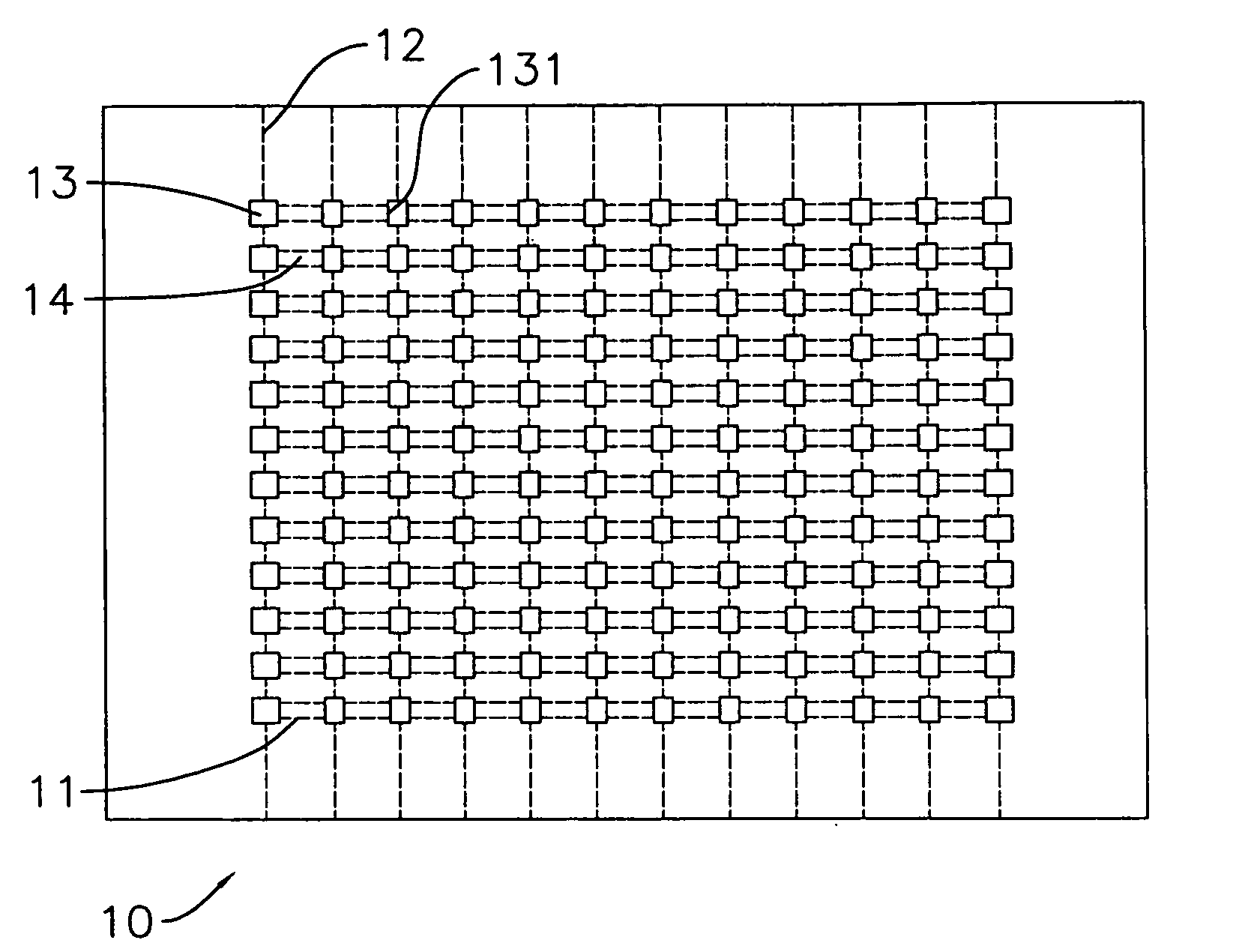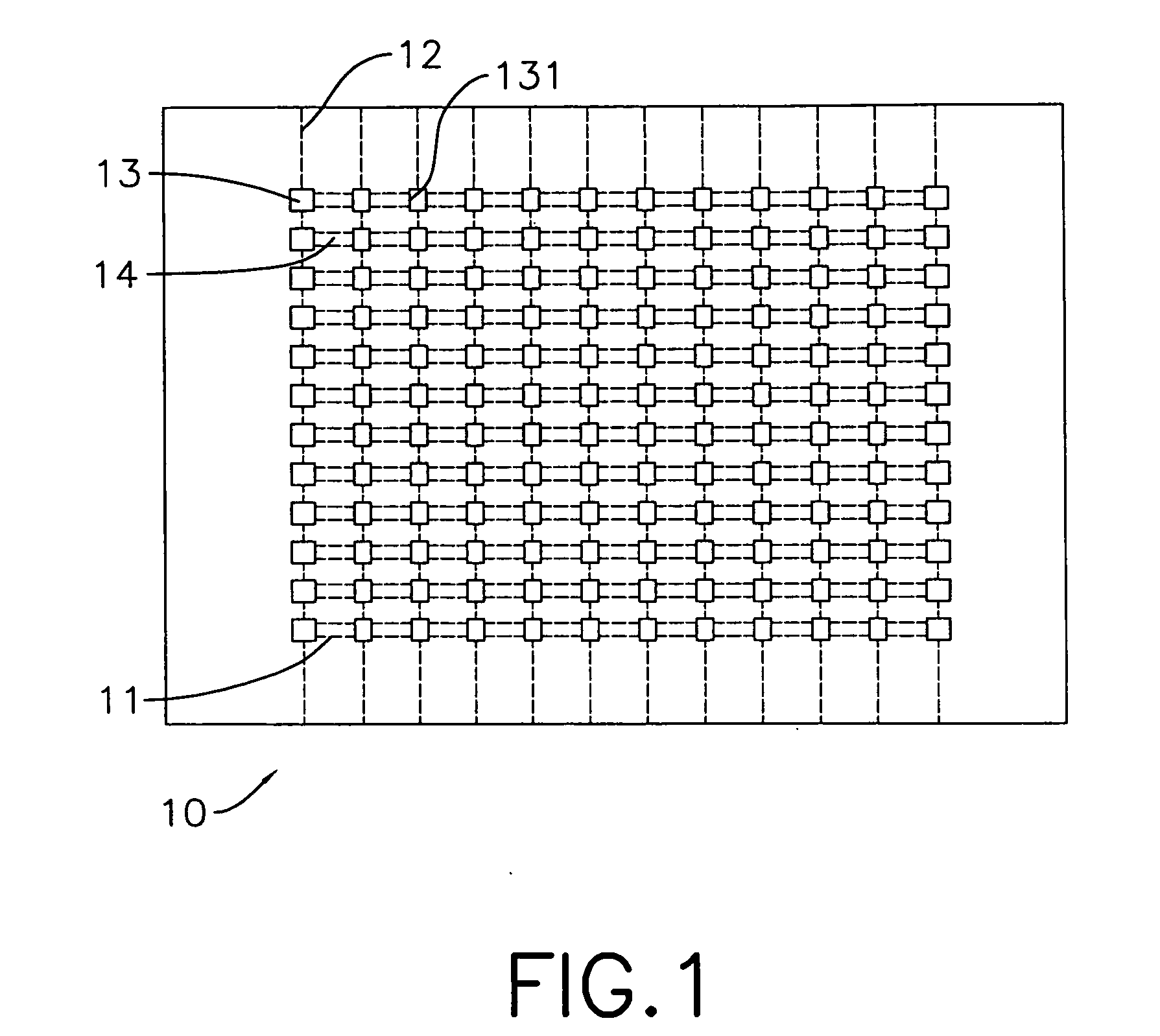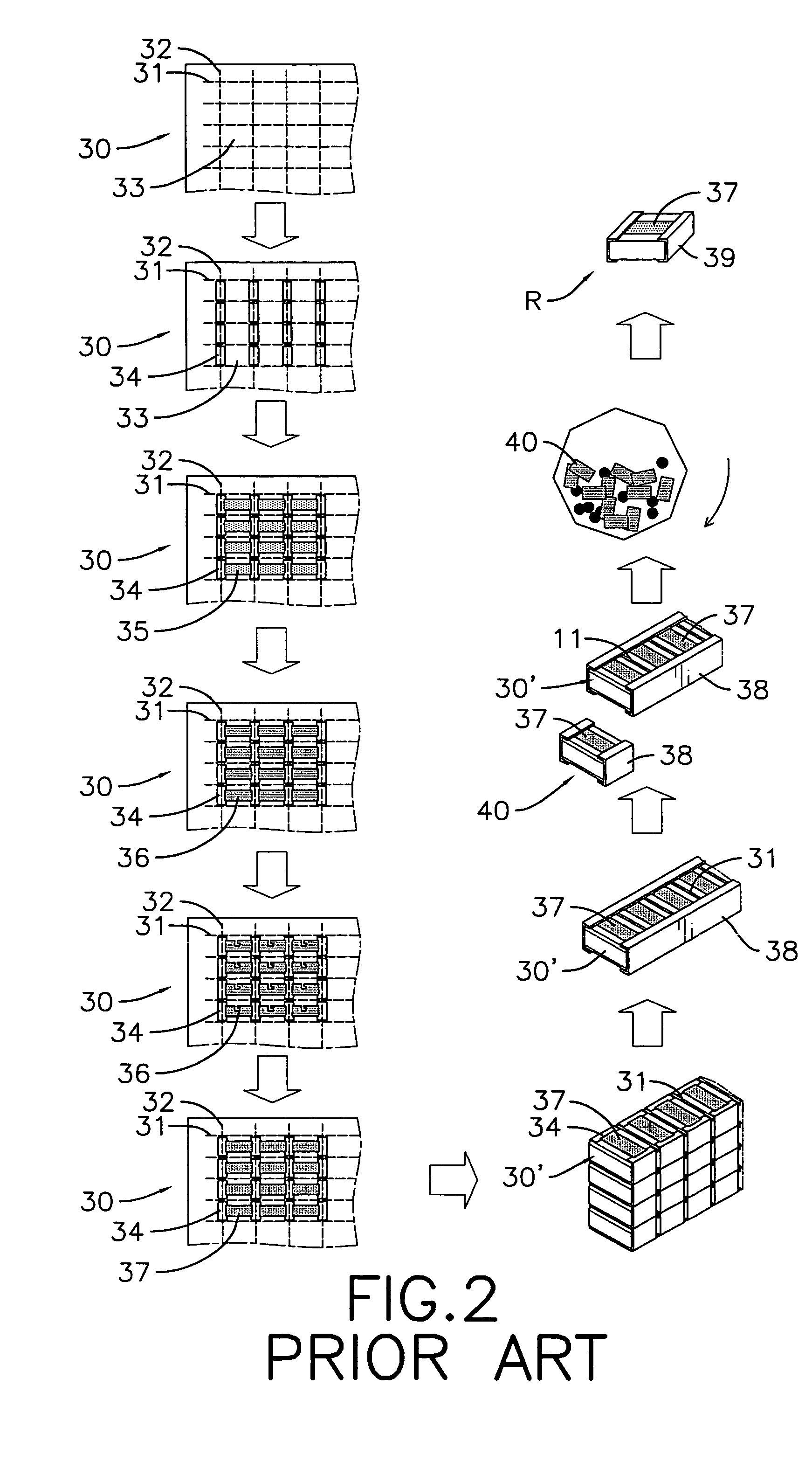Substrate for forming passive elements in chip type
a passive element and substrate technology, applied in the field of substrates, can solve the problems of adversely affecting yield and the conductivity of inner electrodes
- Summary
- Abstract
- Description
- Claims
- Application Information
AI Technical Summary
Problems solved by technology
Method used
Image
Examples
Embodiment Construction
[0026]With reference to FIG. 1, a substrate (10) in accordance with the present invention may be made of cermet, can be used to manufacture chip resistors and has a top surface, a thickness, multiple parallel grooves (11), multiple optional perpendicular grooves (12), multiple through holes (13) and multiple chip regions (14).
[0027]The parallel grooves (11) are formed on the top surface of the substrate (10), may be formed by cutting the substrate (10) with a blade and respectively have a depth. The depth of each parallel groove (11) may not be deeper than half the thickness of the substrate (10).
[0028]The perpendicular grooves (12) are formed across the parallel grooves (11) on the top surface of the substrate (10), may be formed by cutting the substrate (10) with a blade and respectively have a depth. The depth of each perpendicular groove (11) may not be deeper than half the thickness of the substrate (10).
[0029]The through holes (13) are formed between and across two adjacent pa...
PUM
 Login to View More
Login to View More Abstract
Description
Claims
Application Information
 Login to View More
Login to View More - R&D
- Intellectual Property
- Life Sciences
- Materials
- Tech Scout
- Unparalleled Data Quality
- Higher Quality Content
- 60% Fewer Hallucinations
Browse by: Latest US Patents, China's latest patents, Technical Efficacy Thesaurus, Application Domain, Technology Topic, Popular Technical Reports.
© 2025 PatSnap. All rights reserved.Legal|Privacy policy|Modern Slavery Act Transparency Statement|Sitemap|About US| Contact US: help@patsnap.com



